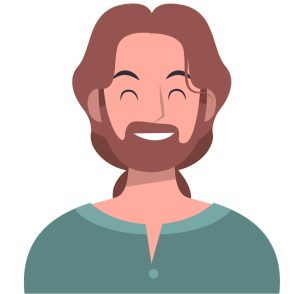5.5 Wann lernst du am besten?

Servus!
Zum Aufwärmen machen wir unseren Tagesminiplausch und eine Wiederholung.
Wiederholung
In the previous lesson, you learned how to ask someone at what time they have classes and to say what time your classes are. Let’s review what you have learned.
How do you ask someone what times their classes are? Write this question down in your written journal. Then answer the question for yourself.
Lektionsüberblick
We all have different learning styles and times of the day when studying comes easier to us than others. In this lesson you will learn some ways to talk about your study habits. In the end, you will be able to 1) ask someone when they study best for class, 2) say when you best study for class, and 3) say how often and what you study.
Was weißt du schon?
Let’s start with our regularly-scheduled skills check.
| Noch nicht start klar?
Du kannst immer auf die gleiche 1010-Lektion zurückgreifen! |
Not confident about starting this lesson?
You can always review the same Lektion from 1010. |
1) Wann lernst du am besten?
We all have times during the day when we are at our best. Those are good times to study. But what if you are like Raj? What question do you think Sofia is asking Raj in the comic below?
 |
Let’s practice.
Jetzt bist du dran!
2) Ich lerne … am besten.
Wann lernst du am besten? Now it’s your turn to formulate a response.
Let’s practice. Read, listen, and repeat each sentence below aloud.
Kleiner Hinweis
Remember that the word studieren is only used in German in connection with your degree program. Unless German is your major or minor, you cannot say “Ich studiere Deutsch“, because this sentence only means that you are majoring or minoring in German. Instead, you say “Ich lerne Deutsch.”
Lernen means learning, but also to do homework, to prepare for class, to study for a class, exam, etc.
Jetzt bist du dran!
Österreich im Blickpunt – Sigmund Freud

Sigmund Freud wurde 1856 in Freiberg in Mähren im Kaisertum Österreich geboren. Die Stadt heißt heute Příbor in der Tschechischen Republik. Er studierte an der Universität Wien und entwickelte später die Psychoanalyse, ein einflussreiches Therapiemodell, das sich mit der Rolle des Unbewussten befasste. 1938 verließ er Österreich und ging nach Großbritannien, um der Verfolgung der Juden zu entgehen. Er starb dort 1939.
Sigmund Freud was born in 1856 in Freiberg in Mähren in the (former) Austrian empire. That city is now Příbor in the Czech Republic. He studied at the University of Vienna and later developed the study of psychoanalysis, an influential model of therapy that dealt with the role of the unconscious. In 1938, he left Austria for the United Kingdom to avoid persecution. He died there in 1939.
3) Was/wie oft lernst du?
Now let’s talk about the subjects and schoolwork we do and how often we do these types of things.
Let’s Practice.
Read each person’s description and mark the words that indicate a subject or project (was?) and the words that answer the question how often (wie oft)?
 |
|
I read a lot for my history class. |
 |
|
I do homework every day. |
 |
|
I study a little bit every day for an exam. |
 |
|
I work sporadically on a project |
Jetzt bist du dran!
Zum Schluß

*As you conclude this lesson, don’t forget to check Canvas!*

Media Attributions
- Comic made at www.MakeBeliefsComix.com
- Image of Julian by pikisuperstar on Freepic
- Image of Noah by pikisuperstar on Freepic
- Image of Emilia by pikisuperstar on Freepi
- Image of Lara by pikisuperstar on Freepic
- Private:

